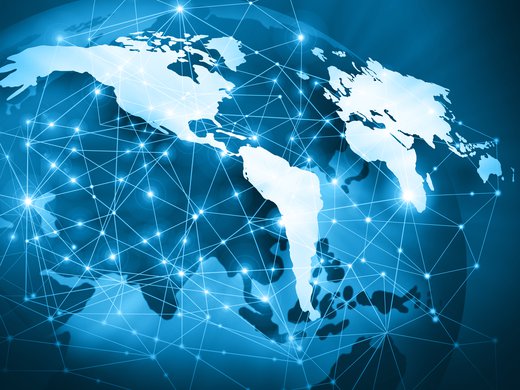Most of us have lived with the internet, through its most common application, the worldwide web, for a quarter of a century. It seems as reliable as electricity or drinking water, and it is recognised as critical infrastructure. But the internet is not as substantial as it appears — it depends on a precarious balancing act behind the scenes, where technical problems are addressed in the midst of political squalls.
Although some commentators have started talking about a “splinternet” that carves up the online world into US and Chinese spheres of influence, I would argue that this understates the divisions. In fact, viewed through a geopolitical lens, the monolithic, unchanging internet dissolves into at least four.
As my colleague, Kieron O’Hara, and I describe in a recent paper, the internet is a delicate and elaborate arrangement of hardware, software, protocols, standards, organisations, databases, security, telecommunications and more. The internet is not just a technical system — it is also social, a massive, tangled interaction involving half the world’s population. These people are often erroneously called users; rather, they are participants in this conversation. The internet influences society, and society influences the internet.
Why four internets, and not 400 or 4 billion? Four ideologies are particularly influential, because they have been adopted by state-level actors with the resources to push their visions, fund the science behind them and, crucially, “sell” them to allies.
The four internets currently coexist in an uneasy peace and even host a parasite. But they are not in equilibrium. It is possible that one or two could drop out of the picture, and one or two become dominant, transforming online public space with repercussions for politics, commerce and civil society.
Internet technology has two major technical requirements: decentralisation (no one in charge, anyone can join), and identification (via a unique internet protocol address). The original, what we call the “open internet” of Silicon Valley, welcomes decentralisation and the openness and freedom it allows.
But the identification system has led to threats to privacy and the openness has enabled trolling and fake news. So critics in Brussels and elsewhere demand a nicely behaved, regulated “bourgeois internet”.
Third, there is a “commercial internet”, supported particularly by Donald Trump’s administration and other Washington policymakers. They prize the innovation facilitated by data collection and oligopoly but resist the West Coast vision.
The fourth, the “authoritarian internet” championed by Beijing, uses the technology to monitor and influence social interaction in order to address security, social cohesion, health and wellbeing, transport or climate change.
We must not leave out the parasite: an anarchic hacking ethic allied to paranoid nationalism uses the internet to spread mistrust. It does not care which internet it trolls, as long as there is one.
Nevertheless, the authoritarian internet is the real dilemma. All governments want to engineer good outcomes, and the internet is a powerful tool for “nudging” citizens to behave in particular ways. But nudging and social cohesion can cross over into control and subjection. Eventually, the internet’s essential openness may be threatened.
Technological trends make this a problem now. I believe passionately that artificial intelligence can be a force for good. AI algorithms are fuelled by data created by the web, ecommerce and social networks. Data are highly regulated in Europe, which is also a fragmented market. They are less so in the United States, where the corresponding advantage accrues to its private sector. In China, data regulation is very different, and its private tech giants conform to the Communist party and government line.
Beijing values aspects of the open internet; social networks often alert the government to problems. However, once alerted, it acts quickly to close conversations down. The government is also seeking to tap the power of social networking with schemes to rank the Chinese people in a social credit system.
China is already using its Belt and Road Initiative to build infrastructure across its hemisphere. We could soon see the addition of an information superhighway initiative where the internet has room to grow, including Africa — Beijing’s influence is strong there — and India. Chinese tech firms have invested billions of dollars in Indian start-ups over the past few years, and India’s Aadhaar ID system is almost purpose-built for authoritarian uses. Even Apple and Google have bowed to Chinese pressure to organise their data and services compliantly.
This is not an anti-Chinese argument. Beijing is entitled to regulate as it sees fit, and all governments find the authoritarian internet attractive to some extent. A thriving internet that puts people first should draw on all of these cultures and ideological preferences.
We need to recognise this diversity, while working hard to ensure that standards remain open and governance conforms to common principles. The technology can promote independence as well as social stability across different societies, if it respects the values inherent in them.
This article was first published in the Financial Times as "The Internet Risks Fracturing into Quarters."



